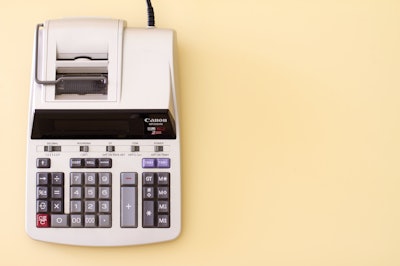
Patty Padilla is the founder and CEO of event production and management firm 196 and partner of Safe Haus Group, an organization dedicated to creating safer environments through the use of industry-specific health and safety technology.
At the beginning of May, the CDC reported that 32% of Americans had been fully vaccinated while an additional 44% had been partially vaccinated. We are seeing huge strides in vaccination efforts; however, according to The New York Times, the U.S. is unlikely to reach herd immunity. Therefore, in-person events will continue to be affected by COVID-19.
As event planners, we have a moral obligation to ensure the health and safety of our guests. We need to do this effectively in order to build back our livelihoods and industry. During the pandemic, there are new standards to which all producers and vendors need to adhere, and they involve additional cost considerations for event budgets. As producers, we need to educate and empower our clients about health and safety protocols and encourage them to set aside funds toward the following components:
COVID-19 Testing
Indoor events are slowly coming back at reduced capacities. One of the stipulations for attendance is proof of a negative COVID-19 test or of vaccination. Many in-person events are using COVID-19 testing to ensure their attendees and staff are protected from possible transmission and infection. There are two testing options: molecular (PCR) and antigen (rapid test). The PCR test can take anywhere from one hour to three-plus days for results, depending on the lab, and costs $150 to $300-plus per test. The antigen test can take 15 to 60 minutes for results and can cost $80 to $150 per test. We have also seen the use of concierge testing services and pop-up testing labs at venues. Bottom line? The implementation of testing can add hundreds of thousands of dollars to event budgets.
Scheduling, tracking and verifying results comes with a sizable communications and legal effort for event coordinators. Testing compliance can be folded into the check-in process, alongside a health and safety questionnaire, and a temperature and personal protective equipment (PPE) check. Event coordinators have the added responsibility of ensuring all participants receive information about testing protocols and know what to expect upon arrival at the venue. Strict health and safety access control will ensure that your event is in its own COVID-19-free bubble.
PPE
Face masks are not going anywhere anytime soon at indoor events. Providing masks is like providing sunscreen and water for an outdoor event—they’re a must-have. The most common types of PPE are face masks, face shields and gloves. It is the responsibility of the event coordinator to have two masks available per person per day of the event. A good rule of thumb is to budget $5 per person per day for PPE supplies. Many event producers are using this opportunity to create branded moments for sponsors’ logos, hashtags or creative, artistic themes.
Staffing
COVID Compliance Officers (CCOs) are the new “gatekeepers” to gathering safely. They are imperative as they monitor COVID-19 protocols, such as hand-washing, social distancing and mask-wearing. They should be highly visible and seen as health and safety enforcers. CCOs should be budgeted at around $800 per 10-hour shift and the number necessary depends on event attendance. This position is critically important as many individuals are feeling pandemic fatigue and are becoming less vigilant regarding COVID-19 safety protocols.
Cleaning crews have always been a part of event production, but they now have an added layer of responsibility. It is important to solidify the hourly cleaning of high-touch points with approved cleaning products into the venue contract as this scope of service has increased substantially. Before signing the venue agreement, make sure they have COVID-19 protocols that adhere to your standards.
Food & Beverage
Catering holds its own unique set of challenges as it requires individuals to remove their PPE in order to eat. Because individuals are at a much higher risk of contracting COVID-19 while not wearing masks, it is worthwhile to consider contact-tracing technologies in venues where there is no outdoor space for dining.
Individually wrapped meals, utensils and beverages have replaced traditional buffet lines to prevent the spread of germs. While safer for COVID-19 reasons, the huge uptick in single-use containers for catering has an environmental impact that should not be ignored.
Event Safety Technology
Throughout the pandemic, we have seen new technologies aimed at helping mitigate COVID-19. These technologies can quickly be integrated into your registration systems and take the burden off event organizers. One such COVID-19 compliance and access control platform from Safe Haus Group is called SafeSpaces, and it's an end-to-end COVID-19-compliant technology solution built by event professionals off the guidance of The Safe Way Forward/SAG-AFTRA protocols. SafeSpaces hosts an app-based health and safety questionnaire for guests and staff. It also includes event access control based on testing compliance, contact tracing through RFID credentials, as well as the ability to source labs for testing, health care providers for test collection, and CCOs and check-in staff to ensure health and safety.



















